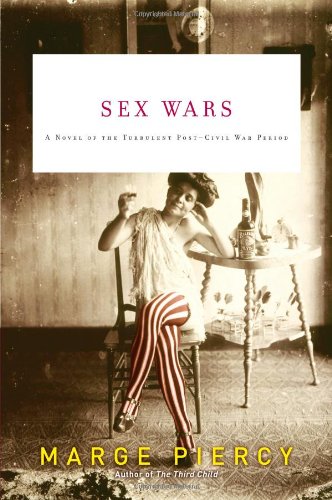Sex Wars
In post-Civil War America, early feminists ran into a backlash worse than today’s attacks on second wave feminism. Crusaders for women’s right to full citizenship and equality in the family, educated women like Susan B. Anthony and Elizabeth Cady Stanton, were reviled as threats to family values. Far more scandalous was Victoria Claflin Woodhull, the spiritualist medium and free love advocate who aspired to run for president. Woodhull’s fame as a writer and speaker magnified the publicity value of her multiple lovers, to the horror of the conservative wing of the suffragists, who feared sexual scandal would be used to discredit the entire movement. The astonishing rags-to-riches saga of the self-educated Woodhull included a colorful relationship with railroad magnate Cornelius Vanderbilt.
Piercy, a prolific and acclaimed feminist writer, sets her latest novel in New York City, primarily between 1868 and 1873, with flashbacks and an epilogue to 1915. She creates a sprawling historical canvas centered on fictionalized biographies of Woodhull, Anthony, Stanton, and the wholly fictional Freydeh Levin, a composite representing immigrant Jewish women struggling to survive and support their families. Freydeh is a young widow with two adopted street children who pulls herself out of poverty with a business manufacturing condoms in her tenement flat for clients in pharmacies and in brothels. Chief villain of this tale is the very real fanatical anti-vice crusader Anthony Comstock, who succeeded in getting Congress to prescribe long jail terms for makers not only of printed contraceptive instructions but also obscene objects made of rubber.
A breezy, gossipy style characterizes the book, making it highly readable in spite of careless editing and excessive length. Sex Wars gains narrative energy from the conflict between views of sexuality in the nineteenth century women’s movement, and the social hypocrisy fueling Comstock’s type of draconian legal repressions.










